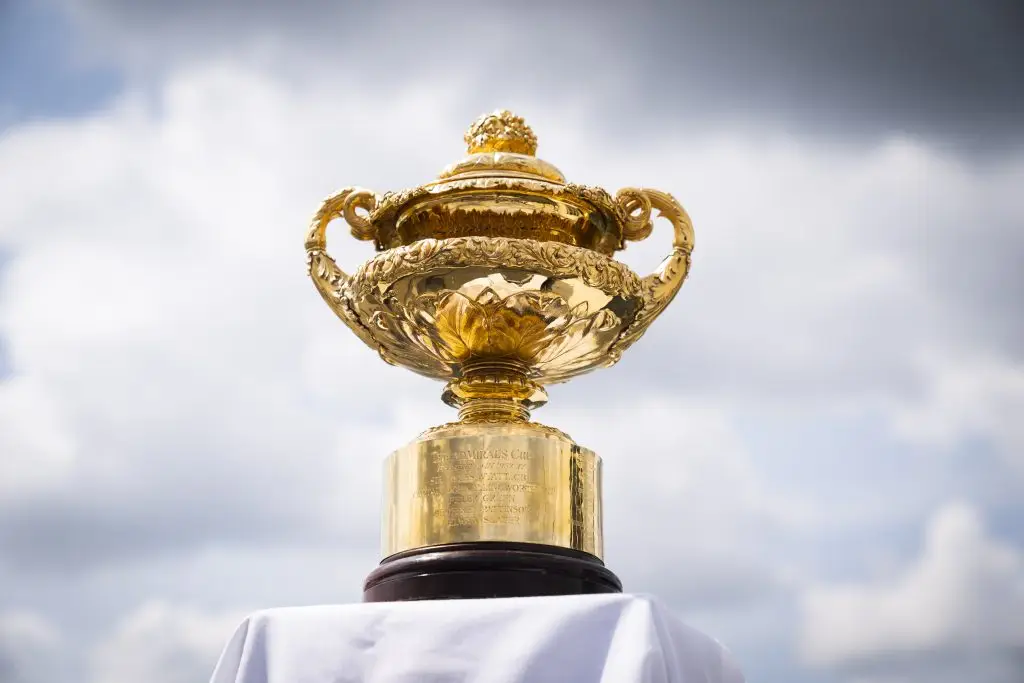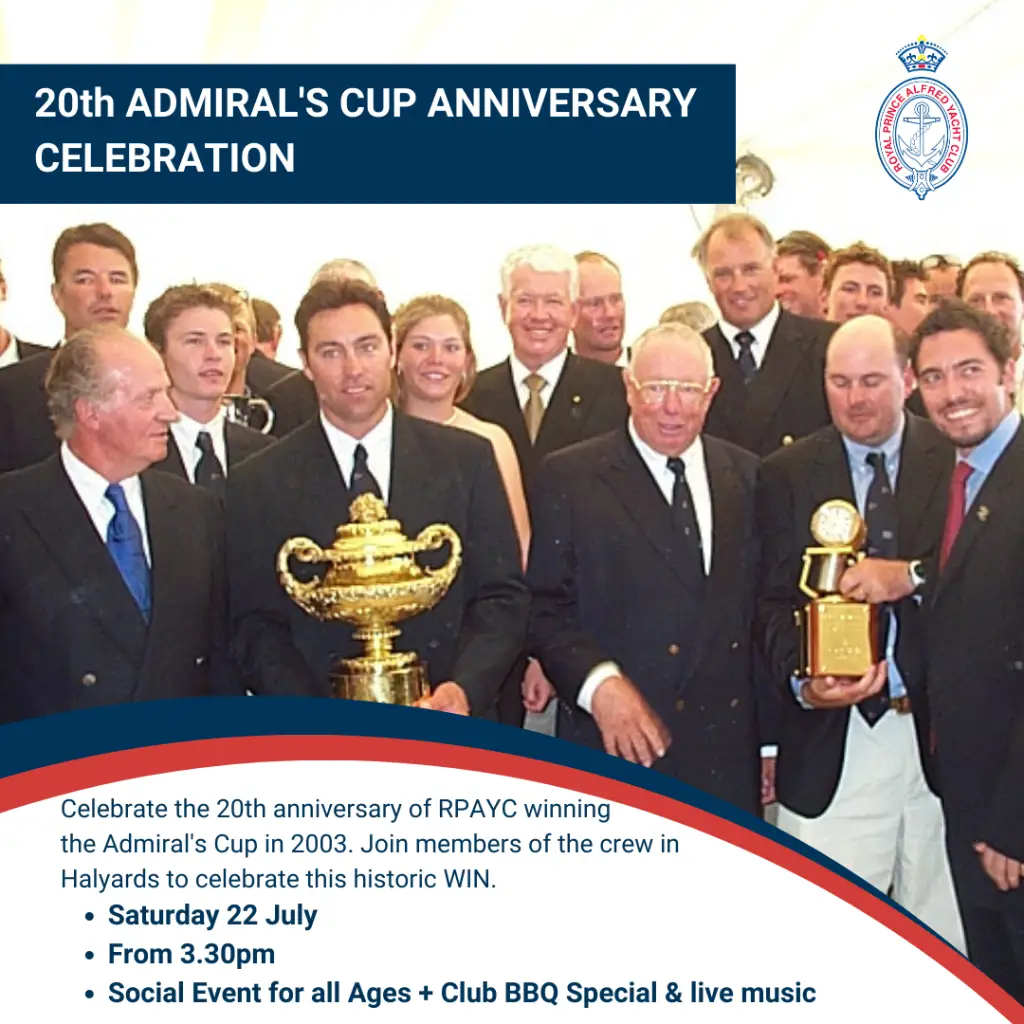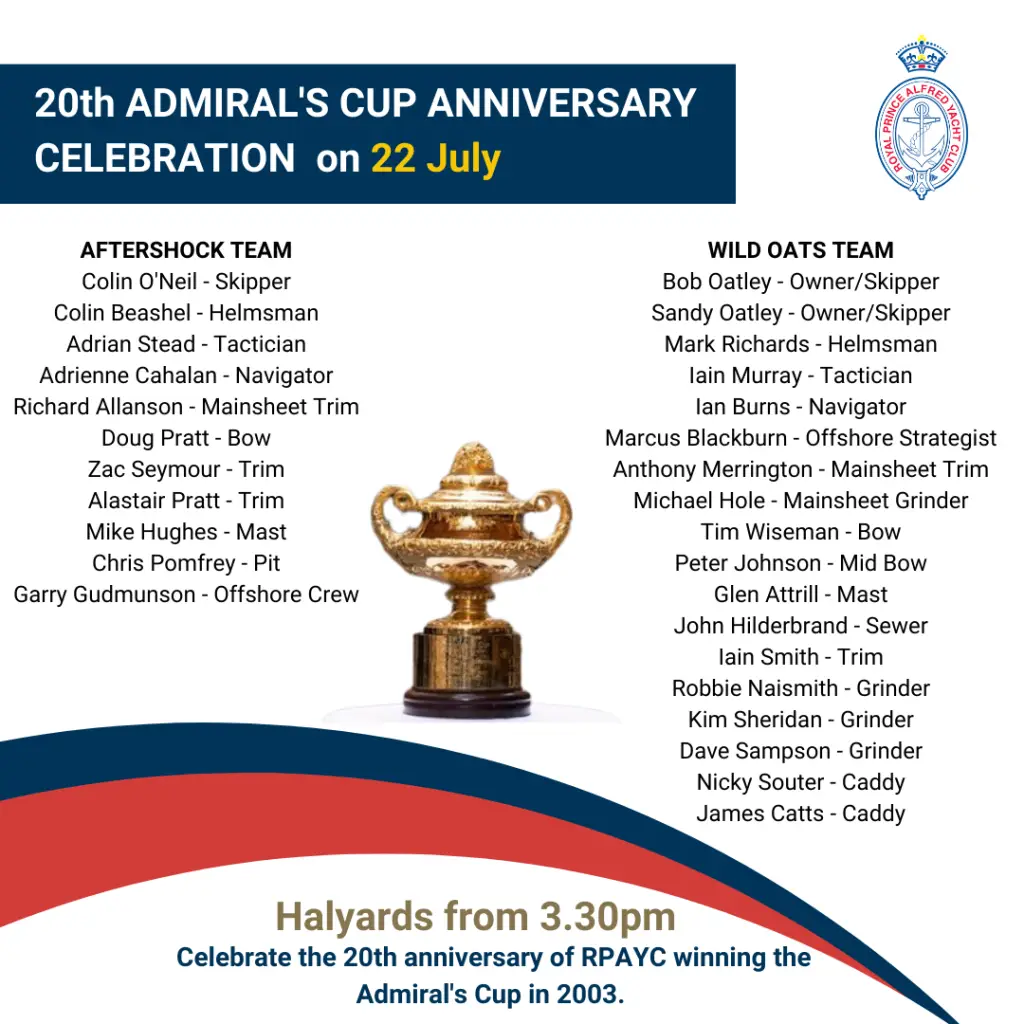
WINNERS ARE GRINNERS AND THE AUSTRALIANS ARE GRINNING
Cowes is full of grinning Australian faces, and it is a long time since they’ve had cause to celebrate at the end of the Admiral’s Cup, 1979 was the last time they won, and that wasn’t a year for great frivolity.
This victory by the team from the Royal Prince Alfred Yacht Club is remarkable in that the challenge was put together by two owners with no previous Admiral’s Cup experience.
Bob Oatley, the owner of Wild Oats, is one of Australia’s foremost wine industry figures, with a long sailing history, but mostly on the domestic circuit, with this being his first major international regatta.
The owner of Aftershock is business man Colin O’Neil and he is following in a the footsteps of his brother, who sailed in the Admiral’s Cup back in the eighties, but this regatta was also a first foray into international competition for Colin.
Other than their performance on the water, one of the outstanding features of the Australian team was the teamwork, “I couldn’t be happier,” said O’Neil about the victory.
“I’ve had a wonderful crew which was put together by Richard Allanson of North Sails in Sydney, and he just put together an absolutely top notch crew, who not only are very good sailors, but such good people to be with, so friendly, and it’s been an absolute pleasure from start to finish.”
For Bob Oatley the performance of Wild Oats has vindicated his decision to go for a radical, canting keel design, that is a touch avant-garde, “we’re more than satisfied with what Reichel/Pugh have delivered.
“The concept of the keel is one of the greatest things to have happened in yachting, the boat sails like a Laser, delicate and wonderful, but she’s also very safe – she always stands up again, sailing her has been a real learning process.”
After a battle that had kept followers on the edge of their seats throughout the nine race series, Spain’s Real Club Nautico de Sangenjo took second place, the Cup slipping from their grasp in the dying stages of the final race.
The King of Spain’s Bribon Telefonica Movistar had put together a remarkable series, masterminded by Eddie Warden Owen, and with Bouwe Beking as principal helmsman.
They chalked up seven first places and one second, before crashing to fifth place in the final race, the race which cost them the Cup, though they weren’t helped by the disqualification of their small boat from race three of the series.
Pedro Campos, skipper of the small boat in this team, Telefonica Movistar, had also been remarkably consistent, except for his one fall from grace, and survived a long hard battle to win the his class in the final race.
England’s Sailability Royal Ocean Racing Club Team mustered some of the country’s finest sailing talent, including double Olympic medallist Ben Ainslie, and many of the Team GBR America’s Cup challenge crew, but only managed third place, getting stronger as the series progressed.
Ben Ainslie, at the helm of the small boat in the team Chernikeeff 4, scored more first places than anyone else in this class, but one or two bad results spoilt his overall record.
“We had a number of missed opportunities, and a number of boat issues, which are part and parcel of boat racing,” he explained, “we are disappointed because we had the chance to be top in the small boat category.”
This team, along with the Sailability Cowes Corinthian Yacht Club team, were funded by Peter Harrison, who is following up his America’s Cup challenge with valuable support for British sailing at many different levels.
Ian Budgen, the principal helmsman on Harrison’s Chernikeeff 2, commented: “We are happy with the overall results, it was a tall order to win overall with the results that we had in the lead-up to the Wolf Rock race, but the team sailed well together and enjoyed the regatta.”
The Admiral’s Cup (12th – 23rd July) is organised by Royal Ocean Racing Club and sponsors of the 2003 event include Corum, Champagne Mumm and Henri-Lloyd.



